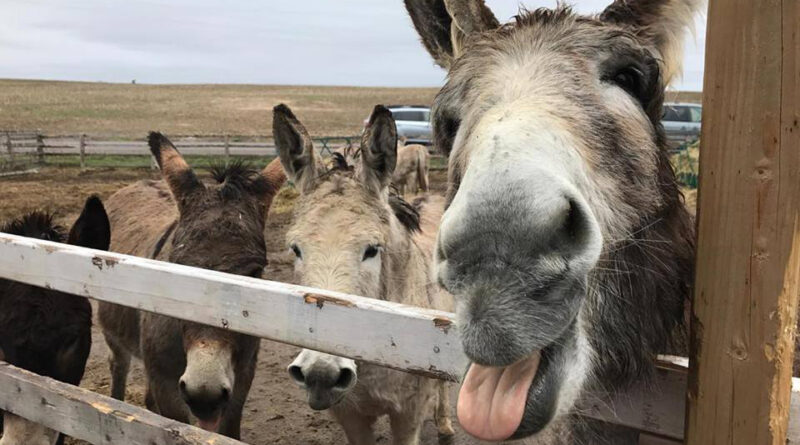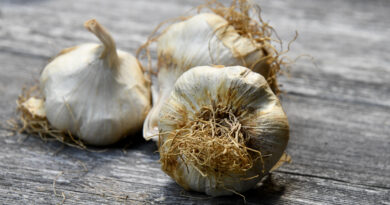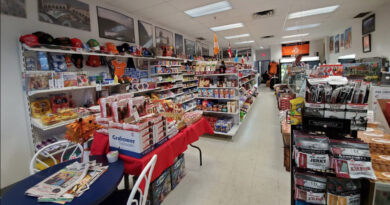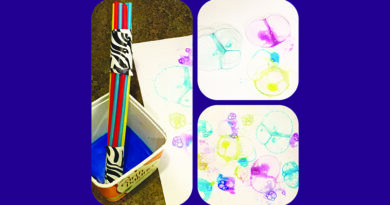PrimRose Donkey Sanctuary
…a place of healing and love, where actions come from a place of reciprocal love and respect to all within.
So reads part of the Manifesto of PrimRose Donkey Sanctuary, where Sheila Burns is the founder and proprietor, but definitely not the boss. She humbly confers that status upon her first donkey, PrimRose.
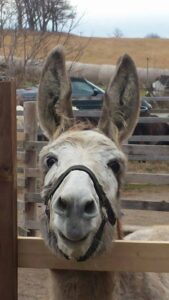 Following a 38-year career as a flight attendant with Air Canada, Burns found herself living in the country near Georgetown. She explains, “I met a lady who had donkeys, and that’s how I fell in love with them. I got this warm fuzzy feeling talking to her, and she actually found me PrimRose, who has been with me for 26 of her 46 years.”
Following a 38-year career as a flight attendant with Air Canada, Burns found herself living in the country near Georgetown. She explains, “I met a lady who had donkeys, and that’s how I fell in love with them. I got this warm fuzzy feeling talking to her, and she actually found me PrimRose, who has been with me for 26 of her 46 years.”
In 2000, Burns moved to a farm near Roseneath ON, bringing PrimRose and her love of donkeys with her. In 2001 PrimRose Donkey Sanctuary became a registered charity; starting out with two animals, the current critter census sits at 55 donkeys, mules and hinnies, 2 goats, 1 sheep and 2 pot-bellied pigs.
Donkeys come to the sanctuary through various contacts. “I get calls from Humane Societies, from neighbours who have seen donkeys in distress, word of mouth, phone calls – I can’t turn anybody away. There is always room for one more,” says Burns. “I would say they have won the lottery when they come here. There is no more abuse, no more neglect; they are very much appreciated and very well loved.”
These stoic, low-maintenance animals are often understood. Burns is quick to point out that ‘stubborn as a mule’ is a misnomer, adding they are simply cautious creatures who will 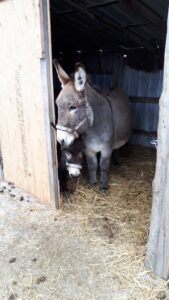 not proceed if they are unsure of where they are stepping, and no amount of coaxing will make them move before they are good and ready.
not proceed if they are unsure of where they are stepping, and no amount of coaxing will make them move before they are good and ready.
She says they are very patient and polite with each other; they don’t judge each other, and they don’t judge humans. This trait is part of the attraction for some of the visitors to the sanctuary. “I have people who come here with emotional issues, health issues – I give them a brush and tell them to go brush a donkey. The animals will stand completely still for ten minutes or more, and folks tell me it’s very therapeutic. Physical pain leaves them, it clears their mind, and the donkeys love the attention. And they seem to zone in on a person in distress, leaning into them, giving them a donkey hug and some reassurance.”
Some of the donkeys who come to PrimRose will never leave, while others are able to find a new home. PrimRose has had good success with adoptions, although there are conditions which must be met.
“I don’t adopt out donkeys for guard animals anymore. A new breed of large pack animal – a cross between wolves and coyotes – is able to take down a donkey, whose instinct is to protect its territory.”
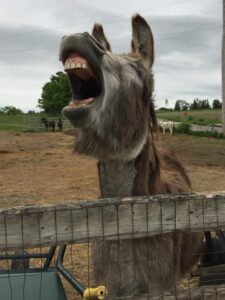 Prospective families are vetted; Burns wants her animals to be placed in a happy family unit. She checks out their property – condition of barns, shelters, etc. – to ensure a healthy environment. “I like to adopt out locally, so my vet and farrier can continue their care of the animals they have grown to know,” she adds.
Prospective families are vetted; Burns wants her animals to be placed in a happy family unit. She checks out their property – condition of barns, shelters, etc. – to ensure a healthy environment. “I like to adopt out locally, so my vet and farrier can continue their care of the animals they have grown to know,” she adds.
PrimRose Donkey Sanctuary operates with the help of thirty-three volunteers and has an annual operating budget of about $150,000. Vet and farrier bills, special feed and meds, hay, straw, building maintenance and repairs and special projects all contribute to the expenses.
“Normally, day-to-day donations from visitors cover the ongoing costs of feeding and caring for the animals. Our special events generate funds for specific projects like barn repair, new fencing, etc.”
Unfortunately, this year COVID-19 has impacted the revenue stream at PrimRose Donkey Sanctuary – it is currently closed to visitors and all major 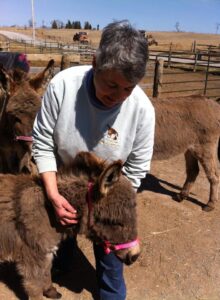 events planned for 2020, including PrimRose’s birthday party in August, have been cancelled.
events planned for 2020, including PrimRose’s birthday party in August, have been cancelled.
Burns hopes more people will become aware of what the sanctuary does, and in turn do what they can to support its efforts. “We are a registered charity, so we can issue tax receipts. People can choose from one-time donations, ongoing monthly donations and gift donations, which are great for birthdays, anniversaries, Christmas gifts, etc.”
Information can be found on their website www.primrosedonkeysanctuary.com
Despite the current uncertainty, Burns remains positive.
“I am very thankful to be where I am, and so grateful for the wonderful support of our volunteers, our vet, our farrier and the public, who help me give these animals the healthy environment they deserve. It’s where I’m meant to be.”
Mule vs Hinny
A mule is ½ horse and ½ donkey, with the mother being the horse. Mules are the size of a horse, with a donkey’s power.
A hinny is ½ horse and ½ donkey, with the father being the horse. Hinnies are more representative of a donkey, smaller than mules.

